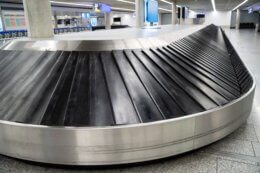
The cost of buying a home in our capital cities is now 14 times our annual income, up from 5 times the annual income from 1990.1
Compare the Market Economic Director David Koch said wage growth had not been commensurate with eyepopping house prices.
“It’s hardly controversial to say Baby Boomers had it better than the young Australians of today – homes were way cheaper, and it didn’t take half your lifetime to save for a deposit,” Mr Koch said.
“While home buyers in the 90s faced the punishingly high-interest rate of 17%, house prices were much lower.
“Borrowers didn’t have to save for big deposits; they could borrow less and spend less on their housing. The key difference between the 90s and now is that average mortgage size has risen six times faster than wages.”
| Year | Cash rate | Average Loan size | Median Weekly income | Weekly mortgage repayments | % of income on mortgage |
| 1990 (Feb) | 17% | $67,700 | $460.00 | $223 | 48.48% |
| 2023 | 4.35% | $593,000 | $1,250 | $681 | 54.48% |
| Using the government’s moneysmart calculator, this assumes loans are owner-occupied (principal & Interest). Assumes the length of the loan is 30 years and has no fees. | |||||
The average loan size in Australia was $67,700 back in the 90s, and now it’s $593,000 – but it could be much higher if you’re looking to buy in metro areas such as Sydney, Melbourne or Brisbane.
“While the interest rate might be more manageable now, the deposit is much harder to get,” Mr Koch said.
“Factor that in with the rising cost of living, which has been kept high due to Boomers spending – it’s no wonder why the young Australians of today think owning property is just a pipedream”.
As a result, more Baby Boomer parents have been chipping in to support their adult children getting a foot on the ladder.
A Compare the Market survey last April found that 26% of millennial homeowners had received help from their parents to purchase property.*
Kochie’s saving tips
Make your money work
Set up automatic transfers the day you get paid so that a portion of your pay is automatically transferred into a high-interest savings account.
For example, if you put $200 away per week, that’s a little over $10,000 per year you could be saving. If you’re consistently putting that amount into a savings account with an interest rate of 5.5%, after ten years, you’ll have almost $140,000.
Work with your budget
Your first home may not be your dream home or your forever home.
For example, you may start with a smaller property, like an apartment, or look a suburb or two outside your desired area.
Some people might try “rent-vesting” – renting out the property they own while living somewhere that better suits their lifestyle.
The Bank of Mum and Dad
If you’re struggling to save a 20% deposit, you may be able to ask a parent to act as a guarantor. That means they would use the equity in their home as security against yours.
It is one way to avoid paying Lender’s Mortgage Insurance (LMI) but it can be a risky strategy.
Anyone considering “going guarantor” must carefully weigh up their personal needs and circumstances. If you default on your mortgage, or lose your job and can’t meet repayments, your guarantor will be liable.
*Compare the Market Budget Barometer survey of 627 Australian property owners – April 2023
[1] CoreLogic, Hedonic Home Value Index 2023, McCrindle, Housing Prices Australia 2003
For more information, please contact:
Natasha Innes | 0416 705 514 | [email protected]
Compare the Market is a comparison service that takes the hard work out of shopping around.. We make it Simples for Australians to quickly and easily compare and buy insurance, energy, and home loans products from a range of providers. Our easy-to-use comparison tool helps you look for a range of products that may suit your needs and benefit your back pocket.
Methodology
| Year | Median house price capital cities | Median annual income | % of income on house |
| 1990 | $119,822 | $23,920 | 501% |
| 2023 | $923,641 | $65,000 | 1421% |








